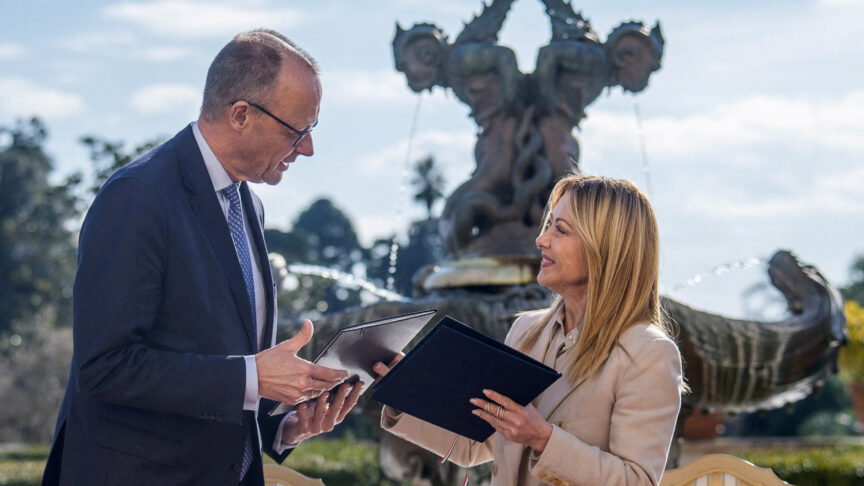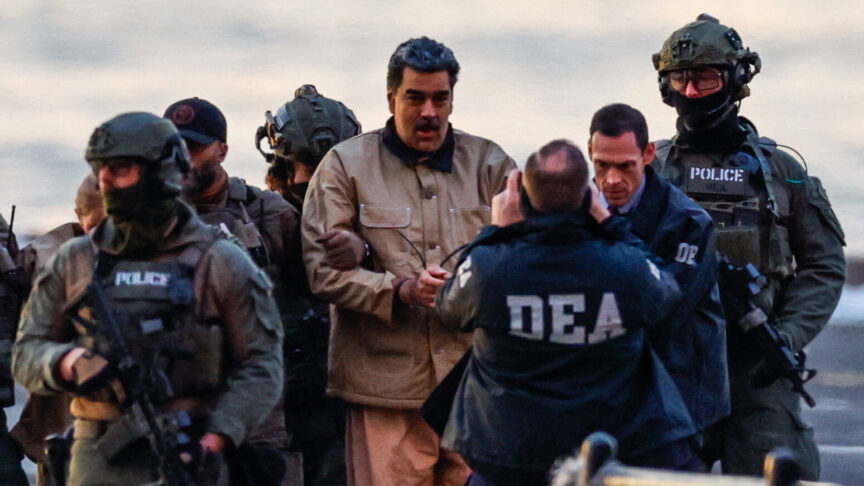Hashim Thaci should resign
The indictment for war crimes against Kosovo President Hassim Thaci helpfully upends the poorly conceived US initiative to reconcile Serbia and Kosovo. But it fatally delegitimates Kosovo’s current leadership.
Just couple of days ago, the EU faced a conundrum. It needed to make the leaders of Kosovo and Serbia pledge support for the EU-led dialogue between them, while US special envoy Richard Grenell was, without coordinating with the EU, embarking on his own initiative.. According to UN Security Resolution 1739 (2010), the European Union was tasked with facilitating the dialogue between Belgrade and Pristina.
But Brussels should not be surprised. Little has moved on this issue since the painstakingly negotiated Brussels agreements of 2013. Having failed Kosovo on the promise of visa-liberalization, Brussels should not have been surprised that others decided to try to steal its limelight.
Grenell wanted to deliver a rare foreign policy success for the Trump administration by getting Serbia and Kosovo to sign a long-awaited agreement on mutual recognition. It may have entailed some sort of ‘border adjustments’ that could have triggered massive interethnic tensions in the Balkans.
One of the most passionate supporters of the Washington-led process has been Kosovo’s president Hashim Thaci. His enthusiasm came from his fear of prosecution by the Kosovo Specialist Chambers in the Hague and his hope that he could gain immunity through the negotiations in Washington.
This international court, operating under Kosovo law, has a specific mandate and jurisdiction over crimes against humanity, war crimes and other crimes that were committed in Kosovo between 1 January 1998 and 31 December 2000. Although financed by the EU, the court was set up and driven by the US.
Yesterday’s indictment of Thaci and another high-ranking politician and former KLA commander, Kadri Veseli, was expected. But its timing came as a surprise. The sudden statement from the Kosovo Special Prosecutor’s Office says that the reason for unsealing the indictment was that both Thaci and Veseli have obstructed the work of the court and tried to evade justice. There were obviously fears that the prospective deal in the White House’s Rose Garden would also have undermined the the Specialist Chambers and its work. If that was Thaci’s intention, it backfired spectacularly.
In the aftermath of the statement and the cancellation of the summit in Washington, France and Germany reiterated immediately that they expect the EU dialogue between Kosovo and Serbia to resume soon. “Together with Chancellor Merkel, President Macron remains ready to host a summit in Paris”, a statement by the French embassy in Pristina read.
Currently, the summit in Paris and a subsequent meeting in Brussels in late July look possible but difficult. A delegitimized Kosovo leadership, accused of ten counts of crimes against humanity and war crimes, including murder, enforced disappearances, persecution, and torture, could not possibly carry the trust and hopes of Kosovars into negotiations on their future.
In the current circumstances, a delegitimized and weak Kosovo delegation would meet an overly stable Serbian one, after the re-confirmation of president Vucic in the recent, highly questionable Serbian elections. Serbia’s democratic deficiencies are many, but in this case they have just made Vucic look stronger.
In the current circumstances, a delegitimized and weak Kosovo delegation would meet an overly stable Serbian one
After years of neglect, it’s good that the Balkans are back on the agenda in Brussels, and that the dangerous delusion of creating ethnic borders has been torpedoed. A highly qualified and experienced team under the new EU Special Representative Miroslav Lajcak has been put in place to pursue the dialogue.
But the dialogue between Belgrade and Pristina must be based on foundations that are solid in both countries, and in the case of Kosovo this is hardly the case at the moment.
The right thing for Hashim Thaci to do now would be to resign his position as president, paving the way for negotiations among political parties and new parliamentary elections. Those elections could lead to the formation of a broad government, a constructive majority in Parliament and the election of a new president that could pursue the interests of Kosovo in the dialogue with Serbia.
In the unlikely event that the indictment against Thaci and Veseli would not go forward, Thaci would anyway not stand with great moral authority. His mandate anyhow expires in less than a year, and he has said that he does not intend to seek re-election.
Kosovo needs stability in order to continue on a path of democratic reforms. And the EU needs a partner in Pristina to give support in these efforts. That’s why a new start is necessary. The alternative is a delegitimized and weak Kosovo leadership, an increasingly complex relationship with the international community, and a standstill in the efforts to achieve a normalization of relations with Serbia.
The European Council on Foreign Relations does not take collective positions. ECFR publications only represent the views of their individual authors.


